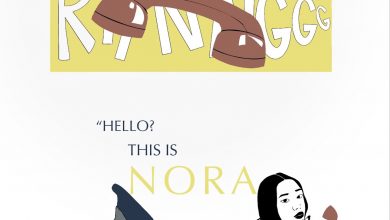Confessions of a Hopeless Romantic: The evolution of heroines in romantic comedies
 As a self-professed hopeless romantic, I must confess that I am a “chick flick” junkie who thrives on romantic comedies. Not surprisingly, I have been called a “hypocritical feminist” for my need to indulge in the dubious cinematic escapism that romantic comedies offer to female viewers. But don’t be so rash in judging rom-coms — they can also function as platforms for feminist messages. In the last ten years the romantic comedy genre has experienced some ups and downs, but has ultimately shown a remarkable evolution and featured a variety of heroines.
As a self-professed hopeless romantic, I must confess that I am a “chick flick” junkie who thrives on romantic comedies. Not surprisingly, I have been called a “hypocritical feminist” for my need to indulge in the dubious cinematic escapism that romantic comedies offer to female viewers. But don’t be so rash in judging rom-coms — they can also function as platforms for feminist messages. In the last ten years the romantic comedy genre has experienced some ups and downs, but has ultimately shown a remarkable evolution and featured a variety of heroines.
“Bridget Jones’s Diary” features a timeless and feminist heroine. Since its theatrical debut in 2001, the character has become a pop culture icon. The image of Bridget (Renee Zellweger) towering collection of self-help and dating books and her obsessive quest to lose fifteen pounds both seem anti-feminist at first glance. But I have to argue that being a little insecure is what makes Bridget so genuine and universal – no woman is free from moments of self-doubt. Bridget does not have the perfect figure, the perfect career or the perfect love life. Ultimately, this character is feminist-friendly because she reminds us that imperfection can be beautiful. The film effectively shatters the pressure to be perfect when Mark Darcy (Colin Firth) tells Bridget “I like you just the way you are.” I love Bridget because she plays the everywoman and finds love despite being flawed.
Unfortunately, romantic comedies seemed to regress in 2003 with the embarrassing “How to Lose a Guy in Ten Days.” In the film, Andie (Kate Hudson) is working on an article that will expose what a woman shouldn’t do if she wants to keep a man and maintain a relationship. In essence, an article on female performance. She is bent on driving boyfriend Ben (Matthew McConaughey) away by doing “everything a girl does wrong in relationships.” Unlike Bridget Jones’s message of changing for yourself, Andie advocates changing yourself to be more attractive to your partner. Her performance conveys the harsh message that a woman must alter herself in order to find and keep a man. Andie maintains the rom-com ideals of impossible perfection that are imposed on impressionable viewers.
Six years later, rom-coms were still urging women to transform themselves into flawless Barbies. “The Ugly Truth,” released in 2009, is the film most emblematic of unrealistic societal expectations and female performance. Abby (Katherine Heigl) is the protégé of perhaps the most chauvinistic, disgusting romantic comedy leading man ever: Mike Chadway (Gerard Butler). He presents Abby with “the ugly truth” that “no one falls in love with a personality at first sight.” Based on this advice, Abby changes herself and practices the personality of a “naughty librarian” – a type that Mike states turns men on. This film is truly ugly because it preserves gender roles to a frightening degree. Mike may try to pigeon-hole Abby into the character of a male fantasy, but Abby is already a stereotype. Abby is romantically challenged because of her established career; she is a shrewish, desexualized harpy for no reason other than that she is a successful producer.
Eventually I came across the refreshingly flawed Jamie in “Friends with Benefits.” Fortunately, the rom-com heroine of 2011 has evolved into a character who not only balances strength and vulnerability like Bridget Jones, but is also a progressive feminist figure who blurs gender binaries. Jamie loves sex, initiates a commitment-free sexual relationship and even instructs her partner in what she likes in the bedroom. She curses, burps and acknowledges the fact that “she has issues.” By refusing to be obsessed with her image or play prim and proper, Jamie neither abides by the firm gender rules that are set in “The Ugly Truth,” nor changes herself to find true love.
I have seen countless romantic comedies that not only portray unrealistic representations of love, but also feature regressive, anti-feminist female protagonists. Romantic comedies may not be the first place to look for a feminist message and gender equality, but characters like Jamie and Bridget prove that the genre may not be entirely hopeless.
This article originally ran in the Winter 2012 issue of Fem.




